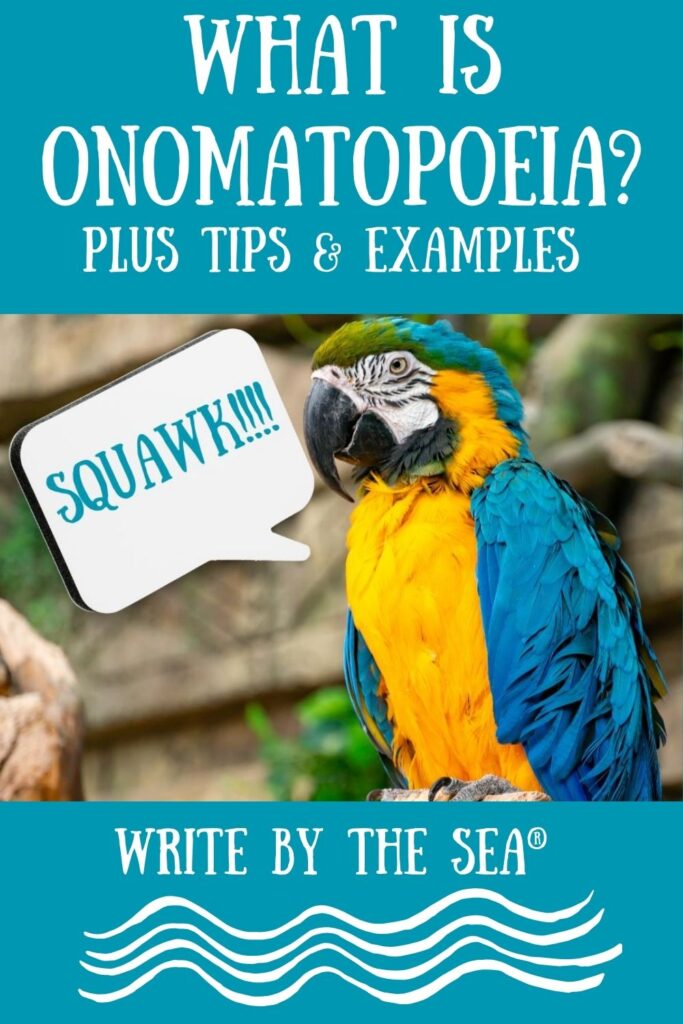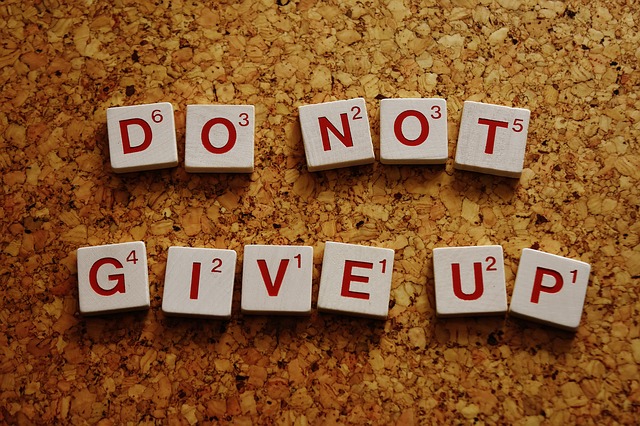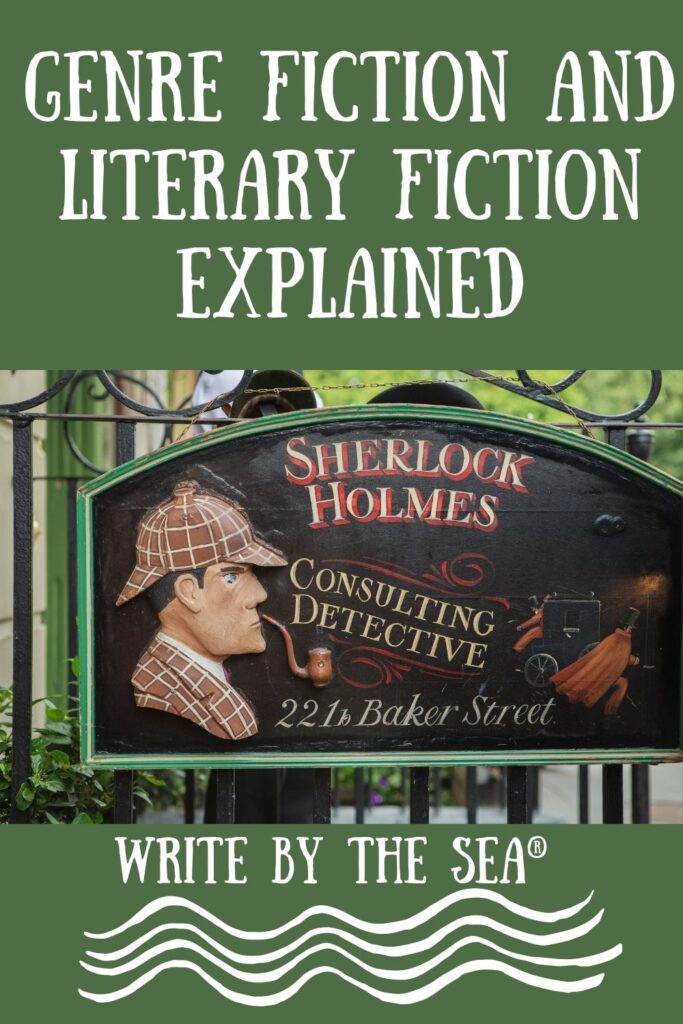
Onomatopoeia is a literary device where words phonetically imitate, resemble, or suggest the sound that they describe.
These words evoke the actual sound associated with the object or action they refer to, creating a more immersive and vivid experience for the reader or listener.
Examples of Onomatopoeia
Animal Sounds:
Woof: The dog woofed loudly at the stranger.
Meow: The cat meowed softly, asking for food.
Buzz: The bees buzzed around the flowers.
Nature Sounds
Splash: The children splashed in the pool.
Rustle: The leaves rustled in the wind.
Rumble:: The thunder rumbled in the distance.
Human-made Sounds
Bang: The door banged shut with a loud noise.
Click: She clicked the pen open.
Sizzle: The bacon sizzled in the pan.
How to Use Onomatopoeia
#1. To Enhance Descriptions
Example: “The campfire crackled in the quiet night.”
This sentence uses “crackled” to create an auditory image of the fire.
#2. To Create Atmosphere
Example: “The eerie silence was broken by the hoot of an owl.”
The word “hoot” contributes to the eerie, quiet setting.
#3. To Add Realism
Example: “He winced as the bees buzzed menacingly close to his ear.”
The word “buzzed” makes the presence of bees feel more immediate and real.
#4. To Engage the Reader
Example: “The sudden bang made everyone jump.”
The word “bang” captures the abrupt, loud sound that startles the characters, making the reader feel the same surprise.
By incorporating onomatopoeia into your writing, you can make scenes more dynamic and engaging, providing a sensory experience that helps your reader or listener connect more deeply with the text.
Here are some more examples of onomatopoeia:
- Splash – the sound of something hitting water.
- Boom – the sound of an explosion.
- Crash – the sound of a collision.
- Bang – a loud noise, often from a gunshot.
- Pop – the sound of a small explosion or burst.
- Hiss– the sound a snake makes.
- Moo– the sound a cow makes.
- Grrr – the sound a dog makes.
- Chirp – the sound a bird makes.
- Ring – the sound a bell makes.
- Clap – the sound of hands hitting together
- Sizzle – the sound of something frying.
- Crunch – the sound of biting into something hard.
- Thud – the sound of a heavy object hitting the ground.
- Roar – the sound a lion makes.
- Clang – the sound of metal hitting metal.
- Tick-tock – the sound of a clock.
- Quack – the sound a duck makes.
- Sniff – the sound of inhaling air through the nose.
- Gurgle – the sound of liquid bubbling.
Now, before you go, if you haven’t subscribed to The Morning Nudge, be sure to do that now, so you get our Law of Attraction Checklist for Writers and free access to our Private Resource Library for Writers, as well as a short email every weekday morning to help you manifest your writing dreams!





